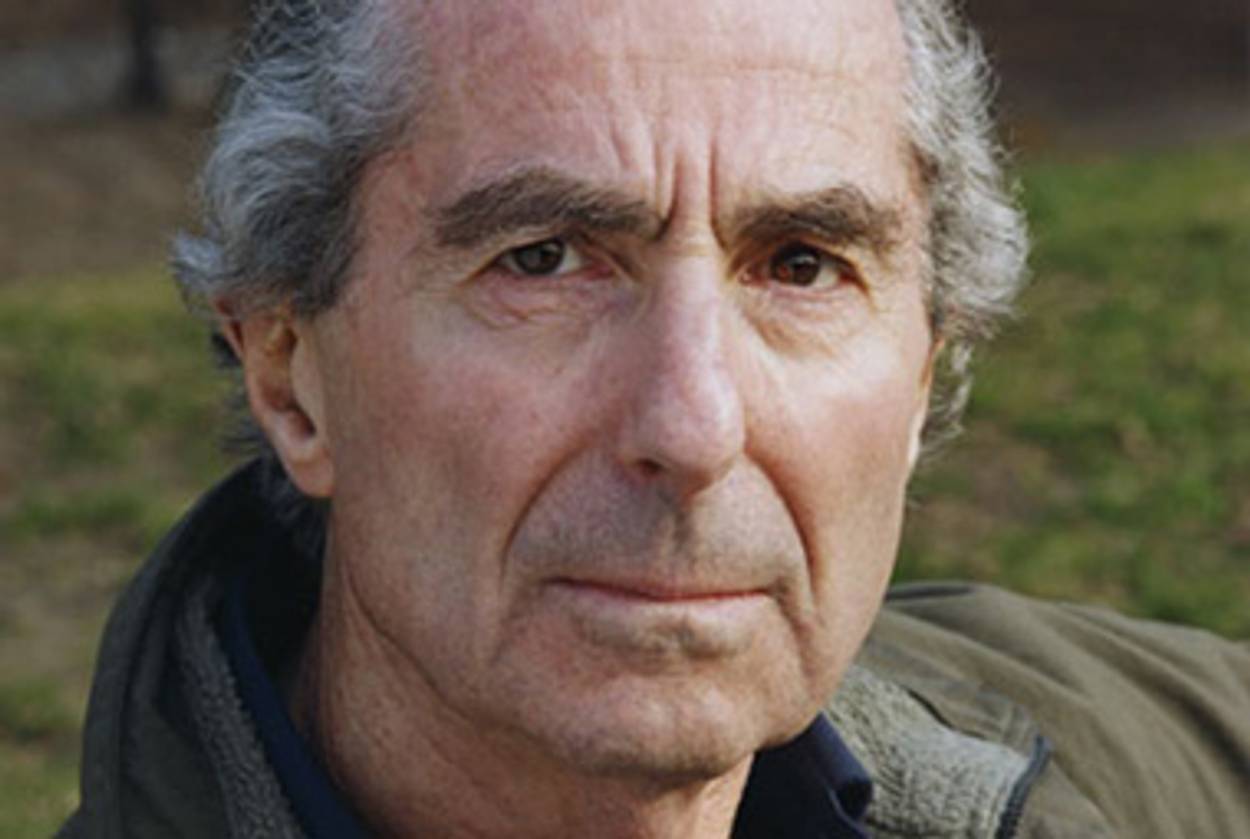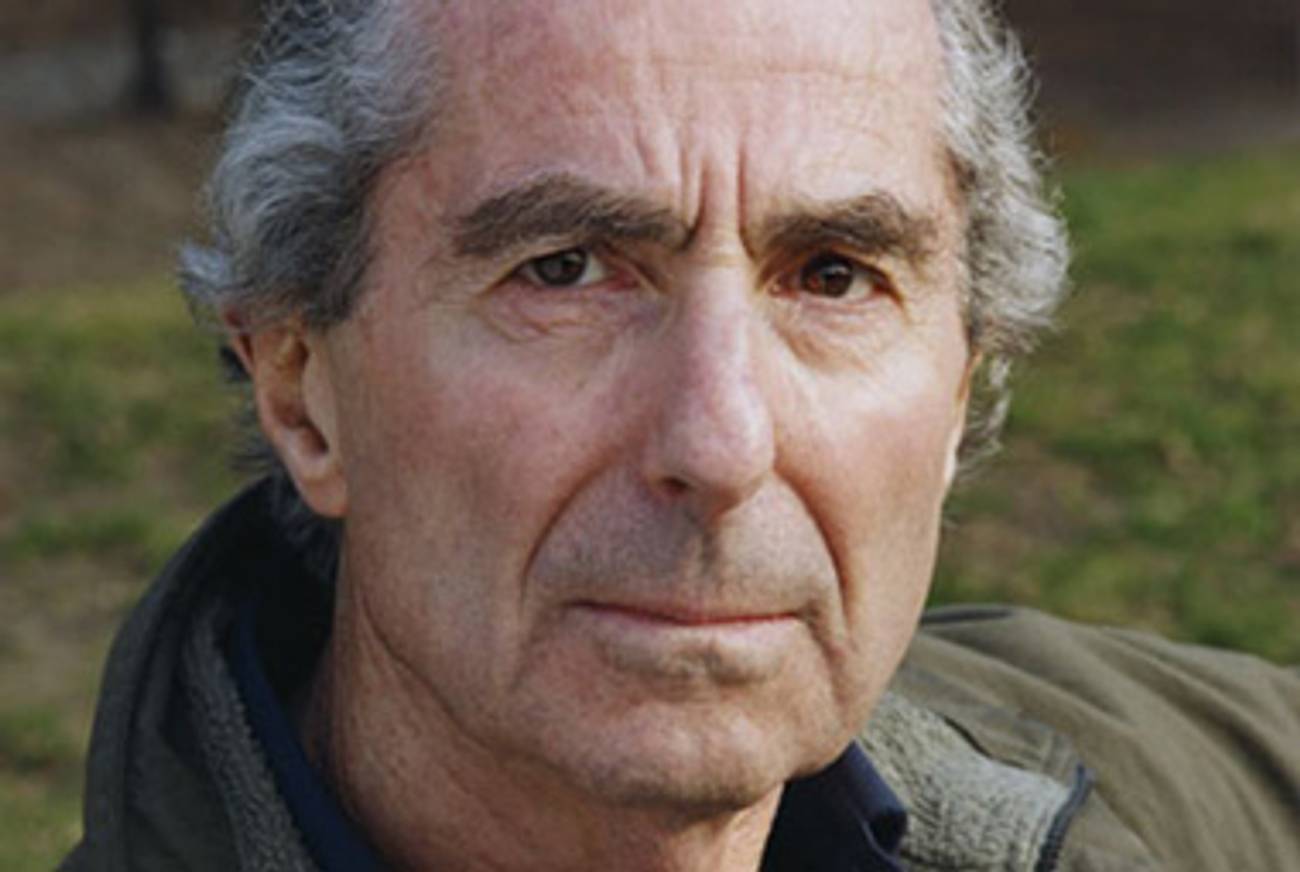The Facts on Philip Roth
Introducing The Rebutter




Senior writer Liel Leibovitz’s weekly, iconoclastic “The Arbiter” column tends to attract its share of disagreement and general verklempt-ness among staffers and readers alike. Here we inaugurate “The Rebutter,” an occasional column from contributing editor Rachel Shukert, to give voice to your outrage and, perhaps, put Liel in his place.
Count me among those perplexed by my esteemed colleague Liel Leibovitz’s scorching evaluation last week of Philip Roth, and particularly by his bizarre decision to focus the bulk of his contrarian ire on Portnoy’s Complaint, which is quite probably the most misunderstood piece of Jewish satire since Leviticus. I am an ardent admirer—if not quite an unquestioning acolyte—of the aging monarch of Jewish-American letters, so I was intrigued to see Leibovitz expand his analysis yesterday to later works like American Pastoral, The Human Stain, The Plot Against America, etc. (if you’re reading this, I expect you can rattle them off as facilely as I can). The sheer scope of those later novels—their difficult engagement with Big Themes promised even by the poetic muscularity of their titles—would seem at least to undermine Liel’s characterization of Roth as a myopic vulgarian incapable of seeing past the end of his decidedly Mediterranean proboscis.
But for Leibovitz, Roth’s lavishly praised later work simply proves his point. Roth’s unwillingness—or, less charitably, inability—to transcend the wee worried world of Weequahic, to successfully create a vision of “the world writ large” in the manner of a Saul Bellow (who has, Leibovitz points out, actually won the Nobel Prize, nyah nyah nyah), is indicative of an inherent weakness, even unworthiness, as a writer. I don’t take issue with Leibovitz’s finding a lack of universality in Roth’s work. I just disagree that universality was ever the point. I can’t think of what would offend Liel more than the charge of being conventional, but he is clearly subscribing to the conventional wisdom that Roth uses the Jews as a stand-in for Americans. And, as usual, the conventional wisdom is wrong: For Roth, America is the jumping-off point to explore the considerably more ancient and—dare I say it?—universal question of the Jews.
To truly understand—and thus, to properly excoriate—Roth, Leibovitz suggests that we first examine his evolution as a writer. He makes much of a quote from the introduction Roth wrote for the 30th-anniversary edition of Goodbye, Columbus, in which Roth expresses his youthful joy and surprise that anybody from the world-at-large would be interested in the “tribal secrets” he felt compulsively drawn to disclose.
(I recognize the feeling he describes; it is, I imagine, virtually identical to how I felt when, aged 11, I discovered Portnoy’s Complaint mistakenly placed in the children’s section at the Omaha JCC library, and was immediately overcome with violent glee at finding something so raw, so carnal, so unabashedly hilarious sharing shelf space with numbingly stentorian YA Holocaust fiction and reams of insipid three-color picture books instructing me to shape matzoh balls with my aproned mother. If such a happy accident is possible in the e-reader-driven future and the cheerfully anguished vulgarity of Alexander Portnoy liberates even one other stultified young reader from the dutiful tyranny of Shavuos With Danny and Debbie, Philip Roth will have done his duty to humanity.)
But back to the “historical” Roth’s later novels, with their flashy A-plots concerning race relations and urban decay and Vietnam and the souring of the American Dream and all the other Baby Boomer narshkeit that are apparently the critical qualifications for admittance into the realm of Great Male American Novelist. (I’ve always found it curious that what I consider to be Roth’s most dazzling strengths—his dizzyingly articulate interior conflict, finely drawn scenes of domesticity, and wrenchingly observed parent-child relationships—are so often disparagingly consigned to so-called “women’s fiction.” This is an author that, as the writer Daphne Merkin once assured me at a cocktail party, “speaks for all men”). Here, Liel accuses of Roth of slipping only further into myopia while failing to see that Roth’s work seeks primarily and spectacularly to interrogate the theme of myopia itself.
The philosopher George Steiner is about one-tenth the fiction writer Roth is, but he has a good line in his novel The Portage to San Cristobal of A.H., in which a group of exhausted Israeli Nazi hunters capture an ancient Adolf Hitler from his hiding place deep in the Amazonian jungle: “There are only two kinds of Jews left [after the Holocaust]; those that are dead, and those who are a little crazy.” Roth has sought to understand the darkest recesses and labyrinthine complexities at the heart of that craziness: the huddled insularity and the worldly expansiveness; the irrational hysteria and the atavistic fear; the excessive self-loathing and excessive self-love; the coziness and the claustrophobia; the outrage and the fatalism; the guilty righteousness and the righteous guilt; the inescapable, almost pathological compulsion to relate, at least subconsciously, nearly every aspect of life back to the all-encompassing Jewish Question, an unbroken chain of doubt, faith, and self-examination reaching from an elderly Aramean in the desert hearing a mysterious voice telling him to lop off his foreskin with a bit of sharp stone, to me writing sarcastically about him on a MacBook Pro at my desk in Manhattan.
Liel quotes Alfred Kazin saying that Bellow was “too full of his being a novelist to be a human being writing.” Apt as the observation may be, it couldn’t help put me in mind of an altogether more hostile quote from George Bernard Shaw in one of his crankier moods: “[The Jews] had better stop being Jews and start being human beings.” It’s a ludicrously insulting statement—as it was no doubt intended to be—but its implicit challenge is hard to shake, and the struggle and resistance to do just that, more than any tales of knife-wielding mothers or Brenda Patimkin-esque materialism or perverse sexual fantasies about unsuspecting blondes with preternaturally tiny noses is of course the great and most enduring “tribal secret” that Roth’s work reveals.
Leibovitz is right: Philip Roth is a narcissistic writer. But it’s not his narcissism that he so subversively and brilliantly, lovingly and scathingly and loudly and above all, uncompromisingly, exposes. It’s ours.
Rachel Shukert is the author of the memoirs Have You No Shame? and Everything Is Going To Be Great,and the novel Starstruck. She is the creator of the Netflix show The Baby-Sitters Club, and a writer on such series as GLOW and Supergirl. Her Twitter feed is @rachelshukert.